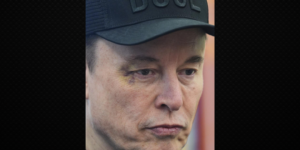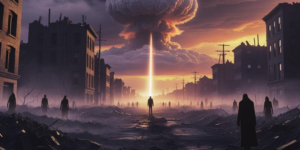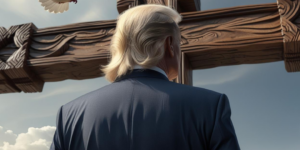Who Is Merrick Garland?
Shortly after the death of Supreme Court Associate Justice Antonin Scalia, U.S. Sen. Orin Hatch (R-Utah), a leading member of the Senate Judiciary Committee, was asked for his input as to a replacement.
“[President Obama] could easily name Merrick Garland, who is a fine man,” he said.
The president has apparently called the senator’s bluff. And, likely, the senator is deeply regretting he answered the question at all. Because now the GOP faces the prospect of blocking a deeply respected jurist who was a prosecutor for presidents George H.W. Bush and Bill Clinton before taking the federal bench in 1997.
So just who is Merrick Garland?
He is currently Chief Judge on the U.S. Court of Appeals for the District of Columbia. And with nearly 19 years on the court, the White House claims he has more federal judicial experience than any Supreme Court nominee in history.
Here are some of the key points the Obama administration is touting:
- Oversaw some of the most important federal criminal cases in recent history, including the prosecutions of Timothy McVeigh and Terry Nichols for the Oklahoma City bombing as well as the government’s responses to the Unabomber and the Montana Freemen.
- Took steps as a government attorney to ensure proper respect for the rights of criminal defendants, helping develop policies that require prosecutors to conduct an individual assessment of each case when making charging decisions, rather than just charging with the most serious offense possible.
- Known as a meticulous jurist with a skill for building consensus, and distinguished as a jurist who decides every case based on what the law requires, stating, “The role of the court is to apply the law to the facts of the case before it.”
The following is excerpted from the biography supplied by the White House on Wednesday:
Born and raised in Illinois by a mother who served as a community volunteer and a father who ran a small business out of the family home, Chief Judge Garland was valedictorian of his public high school class.
He won scholarships to attend Harvard University, where he graduated summa cum laude, and Harvard Law School, where he received his law degree magna cum laude and served on the Harvard Law Review. While in college, Garland worked a summer job as a shoe store stock clerk and sold his comic book collection to help pay his tuition. As a law student, he earned room and board by counseling undergraduates.
Following law school, he clerked for Supreme Court Justice William Brennan, who called him “a person of exceptional talent and great personal integrity” and “one of the best” clerks Brennan had.
Judge Garland has dedicated his life to serving the American people, taking on some of the most difficult anti-terrorism cases in our nation’s history. In the wake of the Oklahoma City bombing, he led the investigation and prosecution that ultimately brought Timothy McVeigh to justice.
As a mentor to his law clerks and a tutor to elementary school children, he is a dedicated and compassionate public servant who will conservatives and progressives praise for his rigorous intellect, his respect for the role of the judiciary and his mastery of the law.
Chief Judge Garland and his wife of nearly 30 years, Lynn, have two daughters, Becky and Jessie. The family enjoys skiing, hiking and canoeing, and together they have visited many of America’s national parks.
On the surface, Garland, who sobbed during his remarks Wednesday morning in the Rose Garden, is not the ultra-liberal boogeyman Republicans have feared the president would appoint. But he does have a few red flags in his record.
Last week in National Review, Carrie Severino of Judicial Crisis Network wrote that Garland would likely be eager to reverse one of Scalia’s most important court opinions, D.C. v. Heller, which affirmed the Second Amendment-protected individual right to keep and bear arms. Her article notes Garland has a “strong hostility” to gun rights.
“Garland voted with Tatel to uphold an illegal Clinton-era regulation that created an improvised gun registration requirement. Congress prohibited federal gun registration mandates back in 1968, but as Kopel explained, the Clinton administration had been ‘retaining for six months the records of lawful gun buyers from the National Instant Check System,'” she wrote. “By storing these records, the federal government was creating an informal gun registry that violated the 1968 law. Worse still, the Clinton program even violated the 1994 law that had created the NICS system in the first place. Congress directly forbade the government from retaining background check records for law-abiding citizens.
“Garland thought all of these regulations were legal, which tells us two things. First, it tells us that he has a very liberal view of gun rights, since he apparently wanted to undo a key court victory protecting them. Second, it tells us that he’s willing to uphold executive actions that violate the rights of gun owners. That’s not so moderate, is it?”




























































